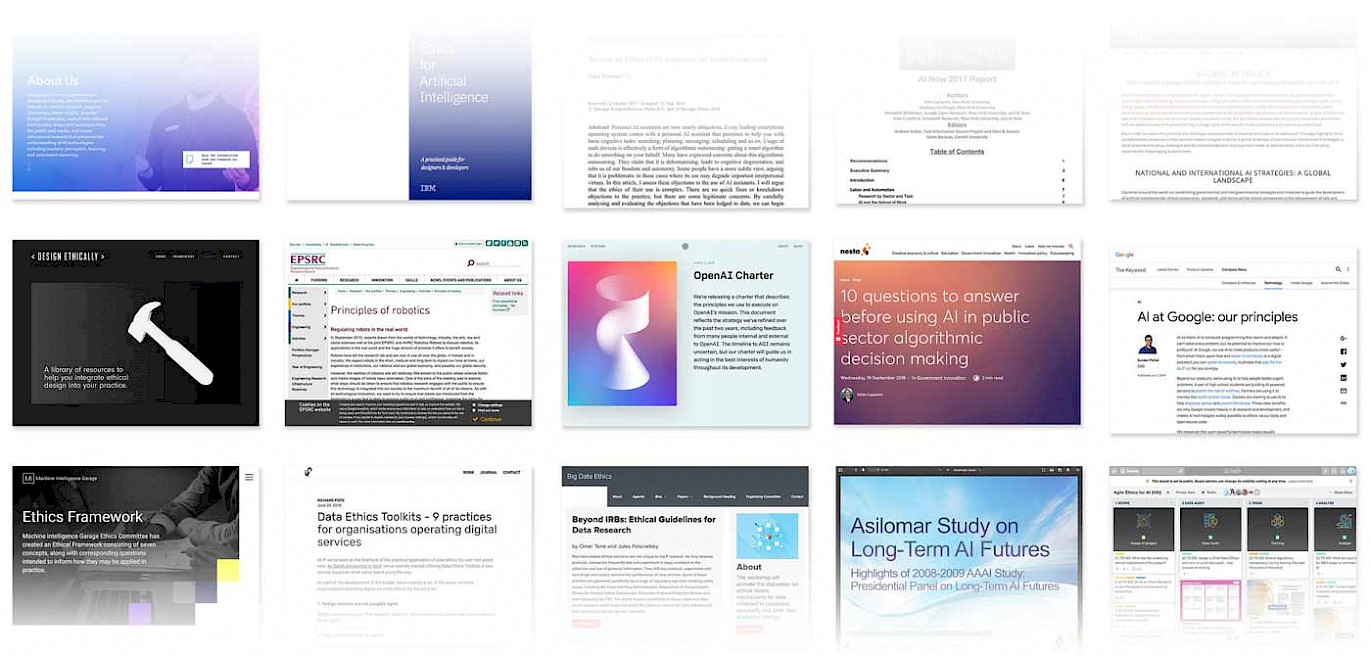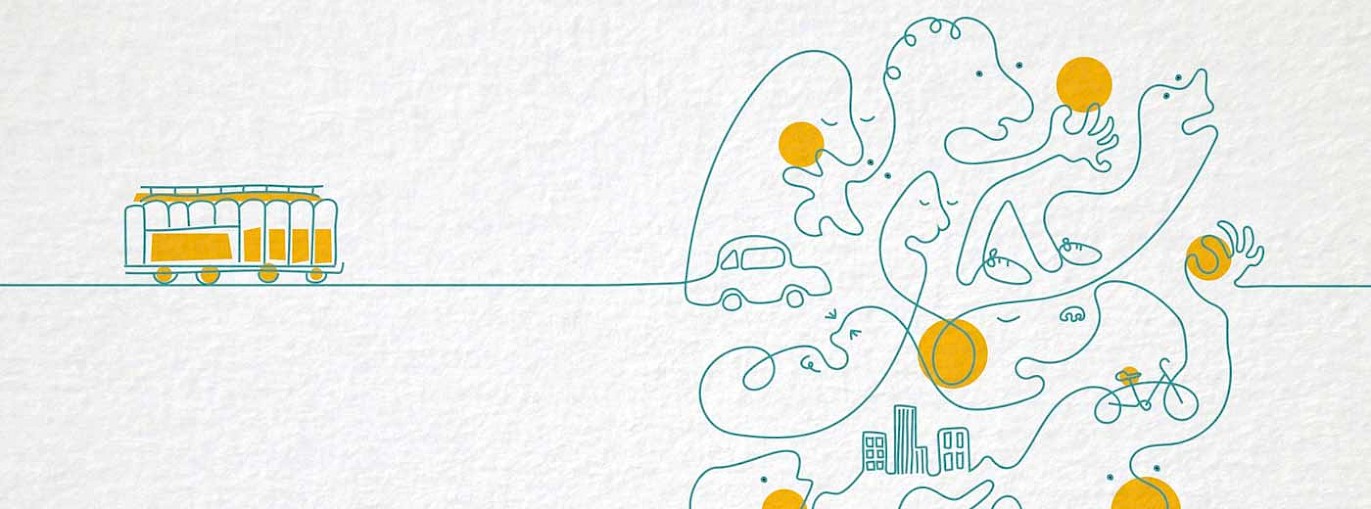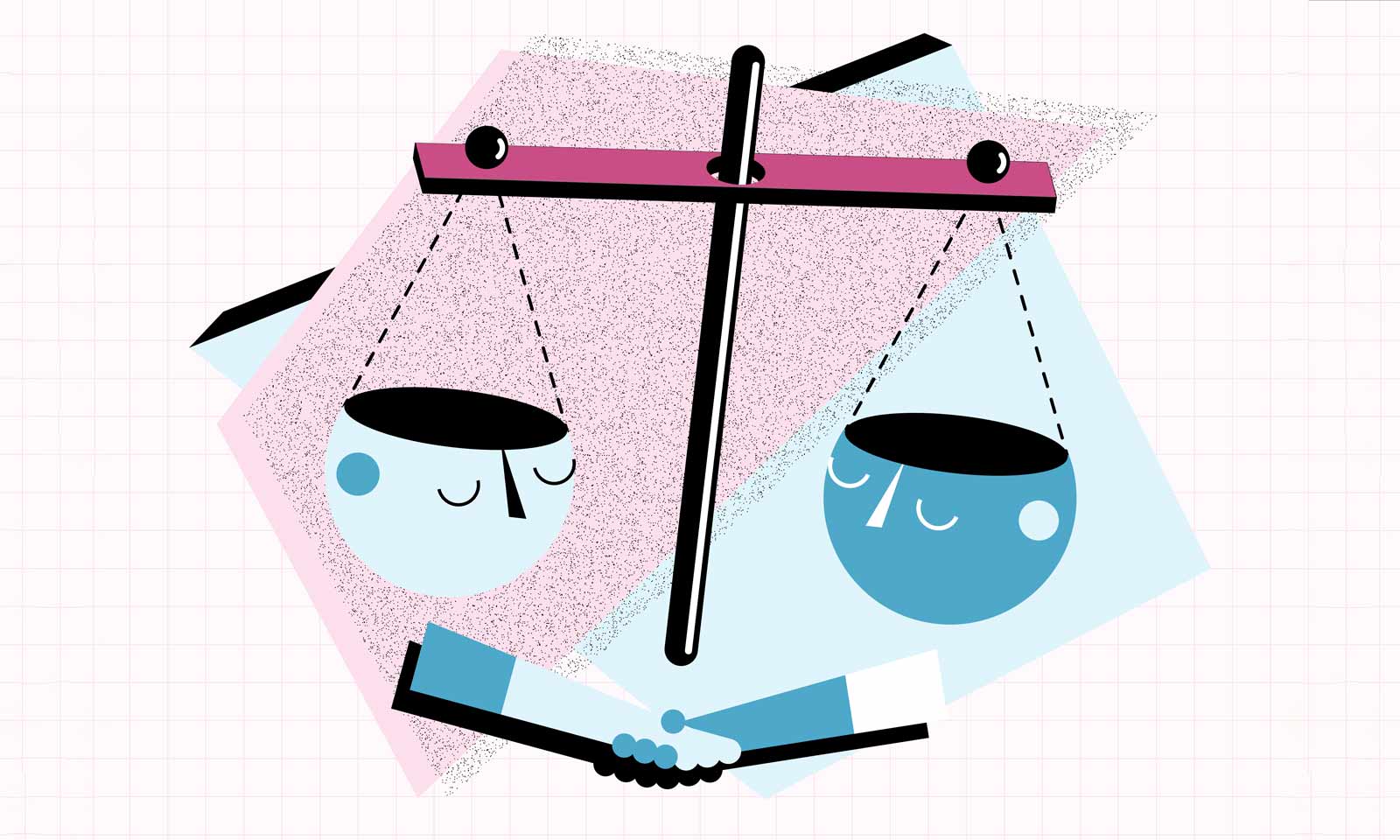What is ethics?
Published: 23 Oct 2023
TL;DR - Ethics is logical, fun and extremely important. It helps us think about our products, cooperate and build societies. It can help shape our future, and by doing ethics we have a better chance at a positive one.
Ethics is a word that gets attached to all sorts of things: ethical produce, ethical design, ethical technology, the act of doing ethics, and indeed the ideas of right and wrong... When I'm talking about AI and Ethics I have a very specific definition in my mind that makes total sense to me, it shapes the way I talk and write about the subject. It gives me a lens to view peoples arguments and evaluate their opinions. It is also something I come back to in every talk I give as a linch pin from which to contextualise other topics.
As I'm coming to Ethics (the tradition of moral philosophy) with most of my professional life in design and development, please bare this in mind. I'm using ethics as method to create better products; to think more deeply about a teams issues, how to create a perspective change in an organisation, to mitigate bad outcomes–all in service of creating a better world. When we're discussing AI and Ethics it's important we're on the same page about both terms... For some thoughts on AI, see this previous article.
So what do I mean when I think about ethics?
Ethics is neither good nor bad
Ethics can be deployed to describe several different concepts. For example its common to see the phrase 'Ethical for X' when you go to a supermarket: Ethically sourced or Ethically grown. Here, we're seeing the term used to indicate that something is a good good, something that is hopefully more socially and environmentally friendly than it's nearest competitor. It's likely to have some kitemark to back this claim in someway.
Ethics for me, and for much of the work in Ethics for AI, is less about labels or branding (though lots of institutions have been jumping on the AI Ethics bandwagon recently with seemingly little intention of following through with their declarations, and even firing their ethics hires...) and more concerned with both the doing of ethics, as well as associatied issues of morality with a new technology like AI, in and of itself. Ethics is about the oughts, the should's and should nots, the just and the unjust, as well as the process of evaluating these judgements. In it's most basic form we're talking about how we make decisions, what decisions lead to good outcomes, how we evaulate what is indeed good or prefereable in the context. We may also being talking about how these processes or decisions can be deployed in other contexts–i.e can we build a generalised set of principles that can govern or guide our conduct (in designing, making and deploying systems in the case of AI)?
The study of ethical thinking is built on thousands of years of moral philosophy. However, if we are to consult our philsophy text books or ethicists everytime we need to make a decision, we simply wouldn't get much done. Much of our practical moralising has been conducted for us through evolution, culture, law, religion, and even our technolgoies and built environments. Indeed, not all of these decisions are just or advantagous: you could point to any of the previous list and find bad examples of ethical decisions that have been made in the past (some that we would find abhorent today like slavery).
Ethics is a way of talking about things that require our thought, our attention, the non-trivial decisions, the things that impact our rights (and indeed what rights we should have), our mortality, and how our society cooperates. We don't often spend much time considering the ethical implications of our breakfast choices, but we do when considering voting on aboration rights, spending on armed forces, and the roll out of new technologies to name but a few. (that is not to say we shouldn't be trying to cut down on sugary cereals :) )
Law is one tool for conveying acceptable conduct within a society, but it isn't the only one: culture and religions for example can also steer or proscribe ways of being. Lived experience and scientific change can also rework how we see the world, and our collective place within it; the study of Ethics is also not exhaustive, we're still discovering ways of being and of cooperating. These changes ask the question how should we live now? What should and should not be permissable... Philosophy and ethics give us a place where we are allowed to question, discuss and experiment with our moral assumptions, our traditions, each other's views, in the hope of paving a direction: hopefully a more positive one. And it seems like no better time to consider our way of coordination, conduct and our futures with the growing previlance of powerful AI technolgies (as well as the climate crisis!).

Ethics is a social contract
Hopefully it might be apparent already that ethical thinking gives us a lens, a way of stepping back and looking at a decision with: people, social interactions, intents, outcomes, and society building at its core. Indeed, there many giants of ethical thought who have equiped us with arguments, methods, and thought experiments to help in this pursuit and many academics adding to the corpus everyday.
Ethics is by definition social. We care about peoples conduct, about the rules they adhere too and the actions they may take in order to keep us safe, to sustain trust, and ultimately to create a society we want to live in. Sounds extreme but, imagine being on a space ship on a one way voyage through space. If your decisions are limited to effecting only you, then there is much less room for moralising, for making hard decions that affect others–your conduct is purely yours and won't form the basis for any coodinations, relationships or societies... Little bleak but does help us explain what ethics is not. Ethics is not the philosophy of our place in the unverse but the philosophy of how we should act within it.
This is not to say that Ethics is wholey a human inventation. Ethics also considers the human entity (and others) as they are, their capabilities, biology and histories. Again this becomes important when considering non-human and, indeed, artificial entities. AI personhood is an interesting area but is in danger of collapsing in on itself as it overshadows more pressing issues in AI Ethics.
Ethics is not relative
Though, moral relativism is a concept in the study of Ethics, Ethics in itself is not only concerned with opinion or the experience of one's self (though that sounds scathing written down). Viewpoints, ideologies and cultures do and should feature, they are part of the conversation, not the end themselves. Again ethics is about cooperation, what is permissible, preferable and what is not. By contrast to the thought experiement of a journey in space, where we don't have to coordinate, we could imagine a town where every individual has their own set of guiding principles that prescribes their behaviour. Just communicating these principles may be a coordination problem in itself! If one person believes money is fictious and won't use it to buy bread, another person doesn't believe in food and hygiene standards, another again in the rule of law... a society like this would find it hard to exist for any length of time. (Though again an interesting thought experiment)
So ethics can not be purely enacted relative to the individual. However, an individual or larger group's beliefs and traditions can be used as a guiding principle, touch point or basis for creating an ethical framework and by extension, a society.
Ethics has principles
As mentioned ethical contracts are used daily to operate in a society: to buy things, greet people, plan and more. Some of these are formalised into laws, languages and traditions–it's difficult to leave the country without a passport for example.
There are also standards, frameworks, codes of conducts and so on... usually deployed to formalise conduct in a particular area or way of working. In 2018, for example, many organisations published their principles on AI, or standards for working in AI. Some have become well know and a great starting point for any organisation looking to utilise or create AI services. As the progress in AI has been relatively sudden we're still formalising good conduct, ways of working and standards. Some of these standards will be important and generalisable to be appropriate for legislation, some will not. It seems to me still very important to research and conduct AI development in a way that is focused on social benefit, for good outcomes for the planet, for a better future. Ethical thinking is an integral cog to make this happen and shouldn't be left to govenments only to prescribe.

Ethics can design the future
Fundamentally, should we pursue this capability? Should we? Seriously... its worth considering that we have the power to change how we coordinate, how society operates, what is ok to do‽ I strongely believe that had genetically modifing biology been allowed and normalised we would be living in a very different world today. AI again, seemingly has the chance of profoundly changing how we live, and we have the power to respond to that change (hopefully preemptively) for the better.
Ethicists and philisophers can sometimes feel like they're sitting in their high towers, their crows' nest, without the context of the incoming ocean crashing against the bow. I believe we need to marry these viewpoints to best steer our collective ship in a postive direction, to get out of trouble! Though I don't like to call myself an ethicist (but sort of been forced to for business reasons), ethicists think about society in general, large groups of people, what is just and right en masse. What are the edge cases? How can we steer the direction, what needs to change, what effect might the change have?
Ethics is fun, interesting and logical
This article was extremely difficult to write and may evolve over time as my knoweldge grows, but... I wanted to leave you with why I got into this in the first place. 1. I LOVE technology and building things, which by extension got me concerned with how and to what effect my products may have, 2. Ethics actually jives with how I like to think logically about problems. To me it's like a big unfinished jigsaw, it's super satisifying placing pieces down and seeing them fit, unearthing new problems and trying to find solutions. Ethics is simply interesting.

Sometimes, however, it can feel somewhat divorced from an emotional connection as you may be dealing with thought experiments that use people in the abstract (consider the Trolly Problem for example), which is where the doing of ethics (or practical ethics) has an important role taking the abstract and marrying it with the plausible, practical and incremental.
Thank you for reading this far. Please be thoughtful, at times inspirational and always imaginative. As:
the world we can't see, probably won't be.
Ben Byford
